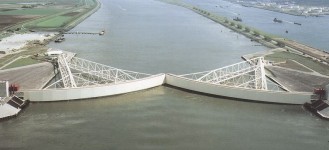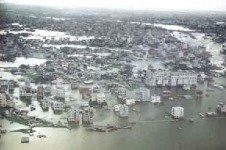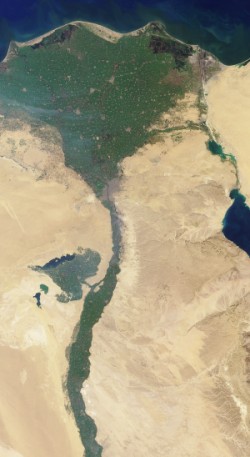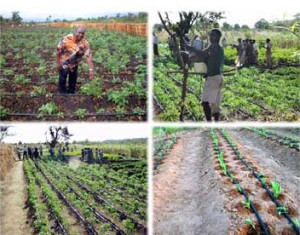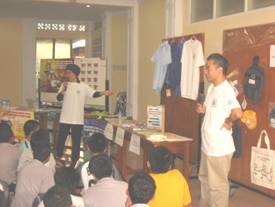
> ACCENT de > Spezial: Juni 06 Klimagipfel > A: Activities > International support
What can the nations do for a better environment
Read the text about the climate summit in Montreal. There are a lot of questions and ideas. Imagine that all the countries in the world were to help each other. Fill in the gaps and say what countries could be going to do.
|
|
Large parts of Bangladesh and the Netherlands are at sea level or even below. The Dutch protect their country with advanced technology. In Bangladesh many of the 140 million inhabitants are regularly threatened by the water.
Bangladesh:
Countless people die in the floods in our country and even more will in the future because of climate change and rising sea level. Who will compensate for this?
Netherlands:
We are experienced in dyke constructions We ___________________________ (construct dykes)
in order to make your coastline safer.
|
 |
 |
|
3. Sweden is rich in forest and water and advanced in environmental protection. Photos: Göran Malmberg
|
Philippines:
We need to become independent from fossil fuels. But who will show us how to do this?
Sweden:
We are a country rich in water and forest resources. We _____________ __________ ______(become independent from fossil fuels). We ____________ _____________ (teach) you, how to get started.
|
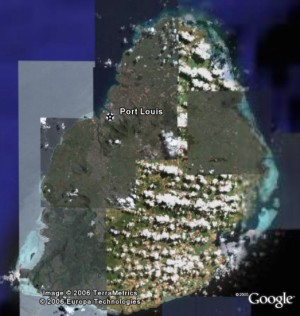 |
 |
|
4. The island of Mauritius East of Madagascar is one of many islands in the oceans which are threatened by sea level rise and stronger storms.
|
|
 |
Mauritius:
Rising sea level and perhaps the increasing threat of storms are a problem for us small islands in the oceans. What can we do?
United States:
We ____________ ___________ (provide early warning system) . We _________ _________ (share experiences) in storm observations.
|
Ethopia:
Long drought periods are becoming more common. Who will feed our people and save the grasslands for our cattle?
Saudi Arabia:
We have earned a lot of money by selling oil. We __________ _________________ ___________ (invest in an agricultural development programme). We ________ _______ _______ (donate money) for first aid and food support in urgent cases.
|
 |
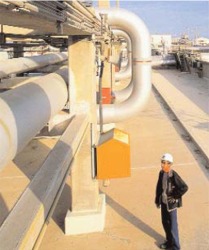 |
 |
|
5. Arabian oil field: Some countries in the world became rich thanks to oil resources. Others may suffer more and more in the future from the consequences of global oil consumption.
Photo by Ken Childress/Saudi Aramco/PADIA
|
|
China:
We cannot provide enough energy for our huge population and growing economy without using fossil fuels like our coal resources. How can we reduce the environmental damage?
Norway:
Carbon storage systems can be efficient for large power plants. We have developed storage systems and we ___________ ___________(cooperate) in order to build up such systems in China.
|
 |
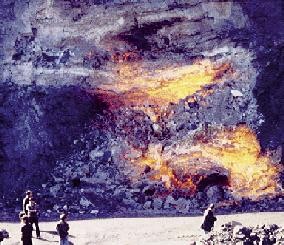 |
 |
|
7. Coal is not only the dirtiest fossil fuel with respectiv to burning efficiency. Often, additional CO2 is released after exploitation by smoldering coal fires under the ground. Source: EARS project.
|
|
|
|
 |
Indonesia:
We have a large population but people are not always aware of climate change.
Japan:
We made a lot of experience with education programs. We _________ ____________ (organise training programmes for the public) in Indonesia.
|
India
Emissions from wood based cooking is a major problem in many poor Indian households. But the families cannot afford expensive cooking devices.
Germany
Our companies are working on simple and affordable solar and plant oil cookers. We _______ _______ (start a distribution programme) in India.
|
 |
 |
 |
|
9. A German non-profit organisation collects money from people who would like to compensate their flight emissions and invests it in solar steam cookers.
Source: Gadhia Solar Energy Systems
|
|
 > ACCENT de > Spezial: Juni 06 Klimagipfel > A: Activities > International support
> ACCENT de > Spezial: Juni 06 Klimagipfel > A: Activities > International support
